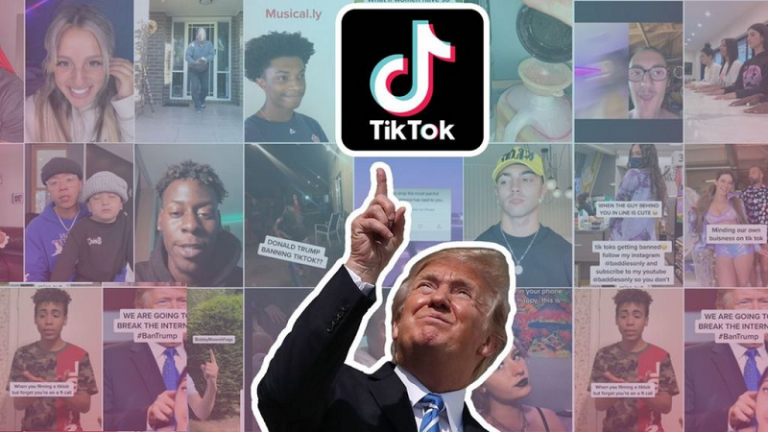
The Trump administration is working on a sweeping plan to restructure TikTok’s ownership, placing Oracle and a group of U.S. investors at the center of its global operations, per NPR.
The effort comes as Washington ramps up efforts to address concerns over the popular video-sharing app’s ties to China and the potential national security risks associated with its ownership by Beijing-based ByteDance.
Under the plan, ByteDance would retain a minority stake in TikTok, but Oracle would take control of its algorithm, data collection, and software updates, ensuring compliance with U.S. security standards. American investors would hold a majority stake, effectively diluting Chinese influence in the company.
Register for Tekedia Mini-MBA edition 19 (Feb 9 – May 2, 2026).
Register for Tekedia AI in Business Masterclass.
Join Tekedia Capital Syndicate and co-invest in great global startups.
Register for Tekedia AI Lab.
While the terms remain in flux, officials hope the deal will satisfy lawmakers and ease public concern about TikTok’s continued presence in the U.S.
Oracle, which already provides the backbone of TikTok’s web infrastructure, would play a pivotal role in the app’s operations under the proposed deal. The company’s interest in TikTok isn’t new; in 2020, Oracle and Walmart attempted a similar takeover, with Trump’s blessing. That deal fell apart over pricing and regulatory hurdles, but Oracle has maintained its interest, reportedly eyeing a stake valued at “tens of billions” of dollars.
Other tech companies, including Microsoft, are also involved in discussions. Walmart, however, has distanced itself from the current negotiations, citing TikTok’s estimated valuation of $200 billion, which is well beyond its financial reach.
ByteDance’s minority stake would ensure some continuity for TikTok, but the U.S. government is insisting on strict safeguards to prevent Chinese interference.
A congressional staffer involved in the negotiations stated: “A key part is showing there is no operational relationship with ByteDance, that they do not have control. There needs to be no backdoors where China can potentially gain access.”
The negotiations come against the backdrop of a law passed by Congress and upheld by the Supreme Court, requiring TikTok to execute a “qualified divestiture” from ByteDance by January 19, 2024. Although that deadline has passed, Trump issued an executive order granting a 75-day extension.
The controversy surrounding TikTok stems from longstanding fears that the Chinese government could exploit the app to access U.S. user data or manipulate its algorithm. Project Texas, a proposal developed during the Biden administration, sought to address these concerns by storing TikTok’s data in the U.S. and putting Oracle in charge of its oversight.
While Project Texas gained momentum, it ultimately fell short of guaranteeing TikTok’s independence from ByteDance. Sarah Kreps, a technology and foreign policy expert at the Brookings Institution, noted the challenges.
“The question that has always been difficult to answer is how do you prove a negative? How do you prove the absence of Chinese control of data and the algorithm?” she asked.
The collapse of Project Texas has led the Biden and Trump administrations to push for a more comprehensive solution, including divestiture.
Beijing’s U-turn
In a surprising turn, Chinese regulators have signaled they may not oppose a TikTok sale. While Beijing has historically resisted foreign acquisitions of its tech companies, recent statements suggest a more pragmatic approach. Observers believe China may view the sale as an opportunity to negotiate trade concessions with the U.S., particularly in the area of tariffs.
Despite this apparent flexibility, Beijing is unlikely to relinquish control of TikTok’s core algorithm, which is considered a crown jewel of Chinese technology. Experts anticipate that any deal will involve complex licensing agreements to maintain some level of Chinese intellectual property rights.
Trump’s Vision of A 50% U.S. Stake
Trump’s repeated assertions that the U.S. should have a 50% ownership stake in TikTok have generated confusion. Some interpret this as a call for partial nationalization, while others believe he is advocating for a majority stake by American private investors.
“Nobody seems to know what he means with the 50% equity comments,” said a source familiar with the negotiations, quoted by NPR.
TikTok’s precarious situation has also affected its relationship with major tech platforms. The app was temporarily removed from Apple’s App Store and Google Play, going offline for 14 hours. Neither company has reinstated TikTok, depriving it of critical software updates and new downloads on U.S. devices.
Oracle has restored TikTok’s web services, citing political assurances from the Trump administration. However, Apple and Google remain cautious, wary of the legal risks associated with supporting an app still partially controlled by ByteDance.
Kreps added: “Oracle just has more confidence in Trump’s political assurances. For Apple and Google, yes, they were invited to the inauguration last week, but where will things stand next week?”
TikTok’s fate hinges on Congress, where lawmakers remain skeptical of any deal that allows ByteDance to retain a stake in the company. Negotiators must strike a balance between appeasing lawmakers and satisfying ByteDance and its investors.
A key challenge will be ensuring compliance with national security requirements. As one congressional staffer pointed out: “Binding legal agreements ensuring ByteDance cannot covertly manipulate the app will prove critical in winning lawmakers’ approval.”



